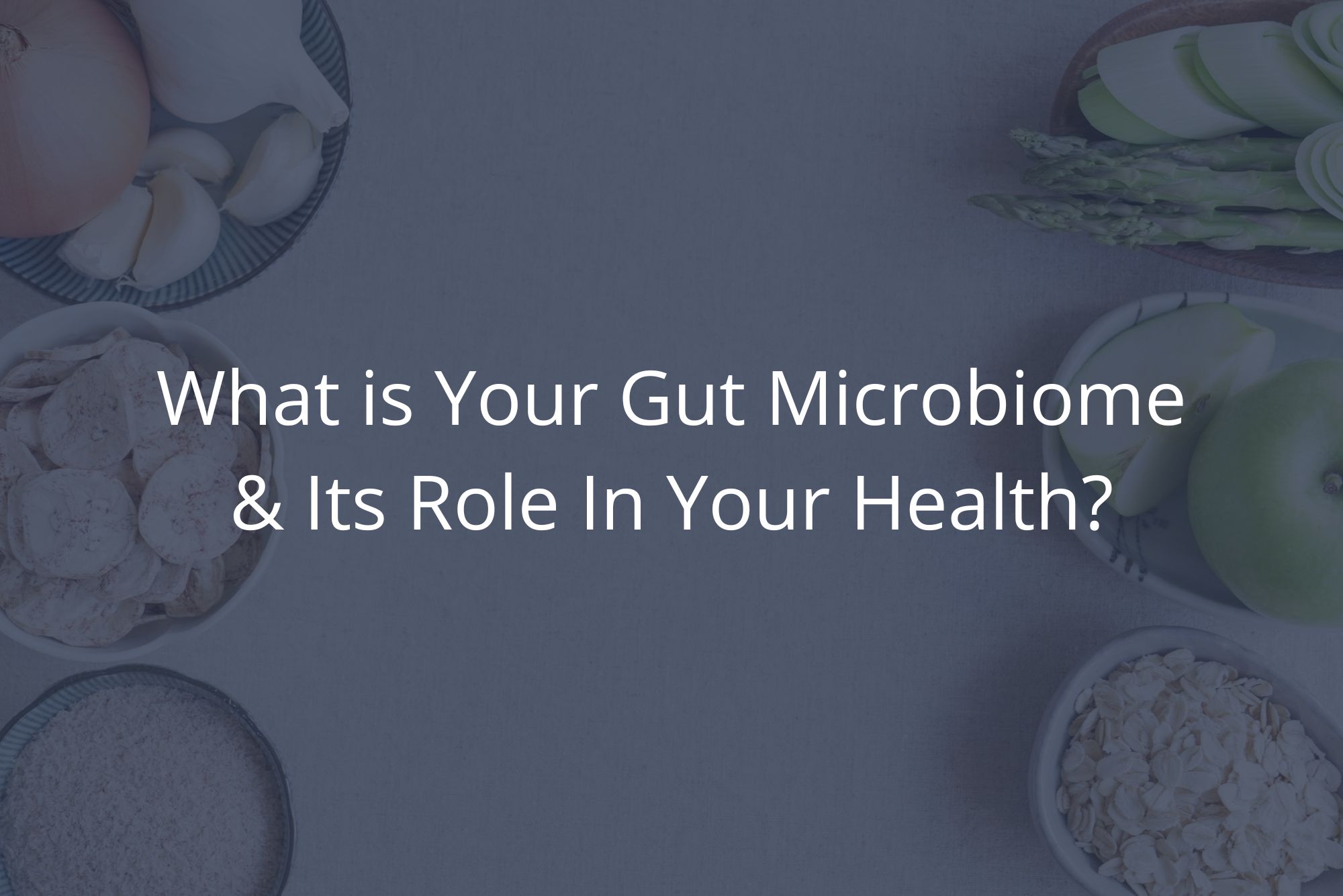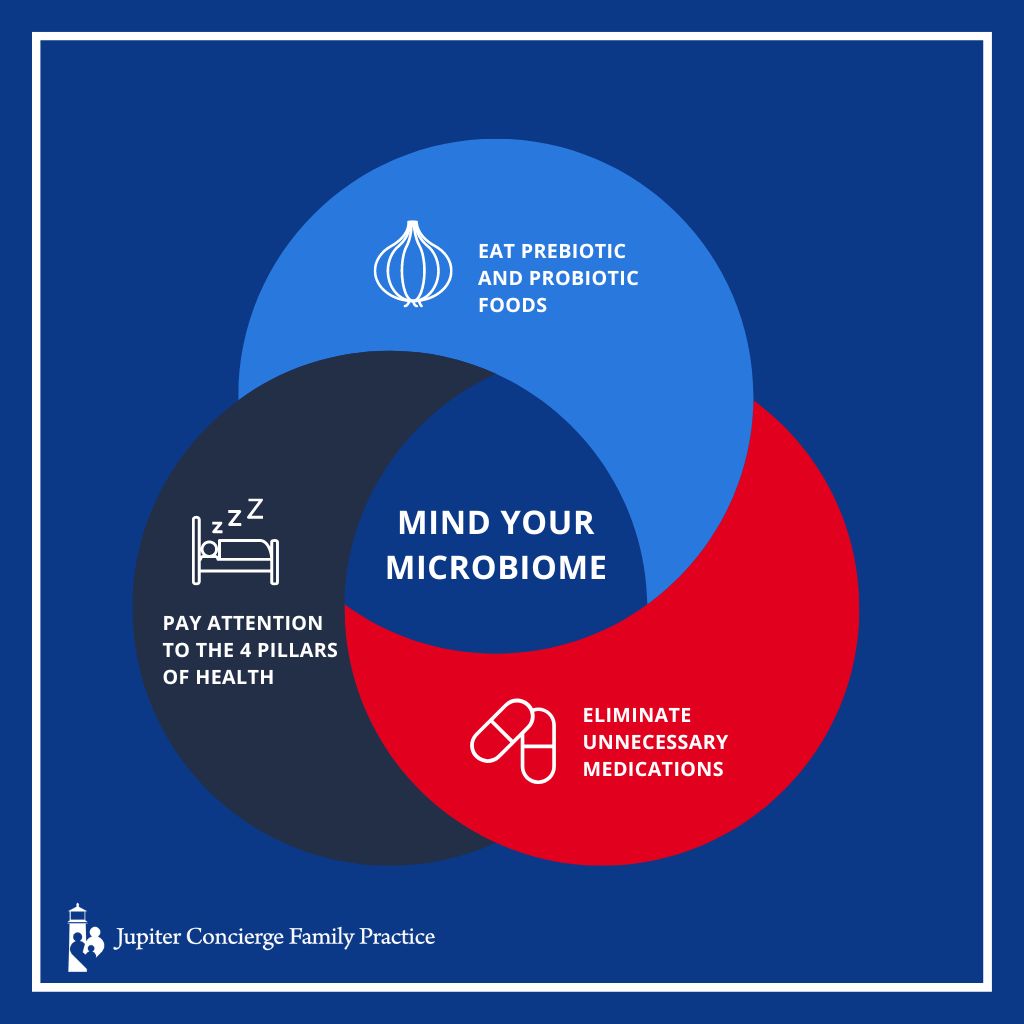
One of the key components to a healthy life is also one of the most misunderstood: micro-organisms. It’s mission-critical to human survival to have a plentiful variety of bacteria, viruses, molds, and fungi flourishing in our bodies.
That may sound gross to you, especially because we’re so used to viewing micro-organisms in a negative light. But the fact is, the human microbiome thrives when all these organisms exist together in proper balance.
For this reason, it’s important to live with an awareness of your own body’s biodiversity. The gut’s microbiome is here to help you thrive, and you can help it. Let’s explore how.
What Is the Definition of Microbiome?
A microbiome is simply an ecosystem of micro-organisms living together. Here, we’re talking about the microbiome of our “gut,” which means that the ecosystem in question involves the mouth, throat, stomach, small intestine, and large intestine.
Together, these organs house a plethora — as in trillions — of micro-organisms. To put this into perspective, we have more bacteria in our gut than we have cells in our bodies.
These organisms live, multiply, and die in our gut for the duration of our lives, and their microscopic ecosystem influences our states of health. When the gut microbiome is in balance, we get maximum, optimal health. When things get out of balance in the gut, we have a higher risk of succumbing to a broad range of illnesses.
In local, gut-related terms, we might develop symptoms like bloating, abdominal cramping, or digestive problems. These are the direct, obvious consequences of imbalance, but because everything in the body is connected, the gut has a long reach. If the microbiome isn’t healthy, indirect consequences like diabetes, autoimmune conditions, and even mental illness can arise.
Still Learning the Human Microbiome Facts
We know enough now to be paying attention to the microbiome, because evidence points to its far-reaching implications. But while our scientific understanding continues to grow, I’d estimate we only know between 5% and 10% of what there is to know so far.
We’re still making new discoveries all the time.
For example, a 2012 study explores the microbiome benefits of vaginal birth versus Cesarean birth. In a nutshell, the study finds that vaginal delivery exposes the baby to beneficial microflorae from the mother. The newborn ingests these florae, which “seed” the digestive tract. From there, a healthy and robust immune system can develop.
In the case of Cesarean delivery, the newborn doesn’t travel through the birth canal and lacks that gut-seeding opportunity. As a result, the baby’s developing immune system may be hampered.
Cesarean deliveries are a necessary feature of modern obstetrics, so this discovery is important in allowing researchers to investigate alternative ways of populating infants’ gastrointestinal (GI) tracts with beneficial microflorae when vaginal birth isn’t possible.
Mind Your Microbiome
Because you can’t see or feel your gut microbiome, you might not realize how much you can affect it. Human beings can exert a powerful influence on their microbiome, either positively or negatively, with some seemingly simple actions. Below are several basic tips that will help you nurture balance and health in your gut.
1. Eat Prebiotic and Probiotic Foods
Probiotics have become fairly well known as a way to introduce beneficial bacteria to your digestive tract and help maintain a healthy bacterial balance. While you can take probiotics in supplement form, you can also ingest them in your food. Fermented foods are an especially good source. Here are a few probiotic-rich options:
-
- Kimchi
- Kefir
- Kombucha
- Non-pasteurized pickled foods
- Miso soup
- Sauerkraut
- Yogurt
- Some cheeses
Prebiotics are foods that set the stage for desirable bacteria to flourish. In other words, they feed your microbiome. Making certain your diet includes plenty of these foods helps stack the odds in your gut’s favor:
-
- Onions
- Garlic
- Bananas
- Berries
- Oats
- Apple skins
- Peas
- Legumes (beans)
2. Eliminate Unnecessary Medications
Antibiotics kill bacteria, even the beneficial ones. While antibiotics are a life-saving intervention in some cases, they should be used with discernment.
Be certain any antibiotics you take are medically necessary. Don’t, for example, make the mistake of taking antibiotics for a viral infection. Antibiotics do not fight viruses, and will only serve to deplete your microbiome.
Other medications can also affect the microbiome by altering our biochemistry. For example, adequate stomach acid is essential for controlling “bad” bacteria and absorbing tryptophan, an essential amino acid. When the stomach can’t perform these functions, sleep issues and mood disorders can arise.
The problem? Many people take medications like antacids and proton pump inhibitors to reduce their stomach acid without realizing there are any consequences. If they knew, perhaps they could work with their physician to address the root cause or find an alternative means of controlling troubles like reflux.
Always talk with your physician to be certain you understand the medications you take (prescription or over-the-counter) and whether they are truly necessary.
3. Pay Attention to the 4 Pillars of Health
4 Pillars of Health — nutrition, sleep, exercise, and stress elimination — are vital to optimal functioning. If you’re not sleeping or eating well, if you’re overexercising or neglecting movement, if you’re not eliminating and managing stressors in your life… you’re heading for trouble.
When we have increased stress — whether from food, overexercise, poor sleep, or emotional strain — our bodies increase production of the stress hormone cortisol. In turn, this breaks down our gut lining, triggers inflammation, and alters our microbiome for the worse.
Go With Your Gut
Every creature has one goal in mind — to live. The micro-organisms in your gut are no exception. When we label them as “good” or “bad” bacteria, we simply mean in relation to our health. They aren’t inherently good or bad. They just are.
Luckily for us, their existence can benefit our health and support our immunity. We now know that your health goes with your gut, so living with an awareness of — and care toward — your gut microbiome provides a new tool to keep you living well and feeling great.

Dr. David Rosenberg
Dr. Rosenberg is a board-certified Family Physician who obtained a BS in Chemistry at Georgia's Mercer University in 1983 and a medical degree from the University of Miami in 1988. He completed his residency in Family Medicine at The Washington Hospital in Washington, Pennsylvania, in 1991 and then practiced Emergency Medicine at Palm Beach Gardens Medical Center for two years. In 1993 he started private practice in Jupiter.
Dr. Rosenberg has been married to his wife Mary for 38 years and they have three grown children together. Some of his interests include being a huge baseball fan, sailing, snow skiing, self-development, and learning to play piano.

